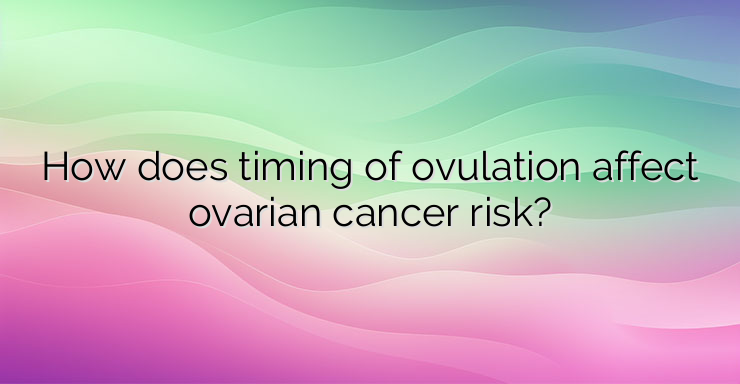Longer ovulation is associated with an increased risk of developing ovarian cancer. This suggests that suppressing ovulatory cycles may lower the risk. A new study published in the Journal of the National Cancer Institute has shown the potential effect of taking oral contraceptives, pregnancy and breastfeeding on the risk of developing cancer. The focus of the research activity was to follow the influence of these processes on the risk of ovarian tumor development, instead of isolated suppression of ovulation, and follow the influence on the risk of developing different subtypes of ovarian cancer. The disease is associated with increased health risk and available therapeutics provide limited effectiveness. An important element is understanding the origin and factors that influence the risk of developing the disease, as this will provide more opportunities for prevention and improvement of women’s health. The research used data from 21,267 ovarian cancer patients and 26,204 healthy participants who were part of 25 different studies. The results showed that the reduced duration of ovulation due to the use of oral contraceptives, pregnancy or breastfeeding was associated with a reduced risk of developing ovarian tumors, and this protective effect was more important than the suppression of ovulation alone. The study focuses on researching the factors that contribute to the development of this type of cancer, through changes in the hormonal balance and influence on inflammation processes. Scientists have also identified key differences between individual ovarian cancer subtypes. For example, the risk of developing mucinous tumors has been associated with factors that suppress ovulatory cycles, but not with the duration of ovulation. Another important finding is the key importance of oral contraception, breastfeeding and pregnancy in reducing the risk of developing ovarian tumors, compared to suppression of ovulation. On the other hand, in advanced-stage serous ovarian tumors, which are the most common but also associated with the highest health risk, the influence of these factors was different. In this case, a significant increase in the risk of developing ovarian cancer was observed when taking oral contraceptives, pregnancy or breastfeeding, which significantly suppress ovulation. References: https://medicalxpress.com/news/2023-01-analysis-link-ovulation-ovarian-cancer.html https://academic.oup.com/jnci/advance-article-abstract/doi/10.1093/jnci /djad011/6998214?redirectedFrom=fulltext&login=false


Leave a Reply